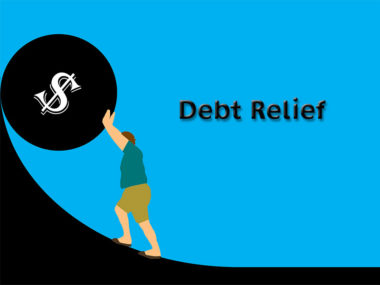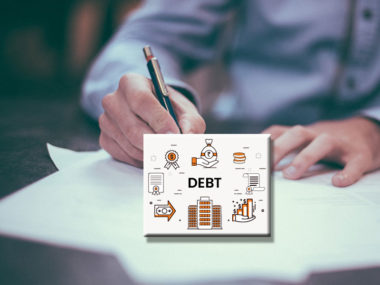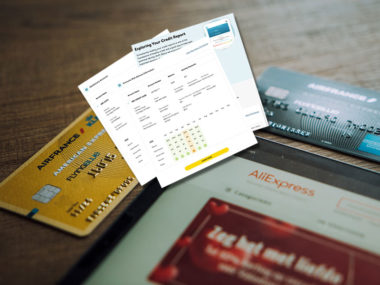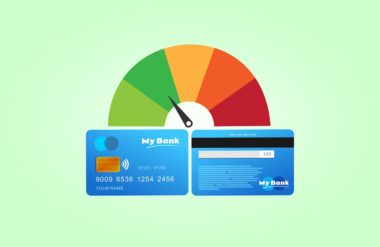Being a single mother, paying off debt and taking care of children is not an easy combination to deal with. If you still have a high credit score in spite of your debt, you might be able to reap the benefits — but the systems in place make it hard to keep a high credit score with a large amount of debt. However, with the right resources and knowledge, you will be surprised how quickly you can get your accounts back into the positives.
Table of Contents
Make A List of All Debts and Expenses
First, take stock of debts you have, and recurring expenses that must be paid.
You might have student debt and credit card payments, which factor into your list of debts. You are likely paying these each month, at the minimum rate unless you scrounge to find some extra money to throw at lenders.
Recurring expenses, on the other hand, are not debts, but things you still need to pay for, especially as a single parent. Utilities such as power and water go in this list, along with diapers and food. These are essential items that have to be factored into your monthly budget.
Set Your Goals
Obviously, your goal is to be debt-free and provide for your kids, as any parent would want to do. The goals, instead, should be a bit shorter term. First, prioritize which debts you want paid off. You have a few options here.
High Interest Loans
You may want to pay off your high-interest loans first. If you have reasonable credit, you might want to ask the lender to negotiate. For example, you may be able to talk to your credit card lender, and either renegotiate your interest rate, or change to a different card from the same lender with lower rates.
As you pay off the high-interest loans, you’ll start having more money to pay other loans. Instead of only paying off the interest on your credit cards, you’re paying off the principal loan. If you don’t have to pay an extra 30 cents per dollar, you will save money in the long run. The Snowball Method
Another method is what financial author Dave Ramsey calls the Snowball Method. Basically, take the smallest debt you have — let’s say a credit card — and put any and all extra money you have towards paying it off. We’ll get to where you can find extra money in a moment, but the main point is to pay off your smallest debt.
Once the smallest debt is paid off, instead of thinking you have more money to play around with that month (as tempting as it would be to buy your kid a new toy and be seen as the best parent ever), put the money you were putting towards the first debt to the next smallest debt.
As the name implies, it starts snowballing. The $50 a month you spent paying off Credit Card A combines with the $50 a month for Credit Card B. Instead of paying $50, with Card A paid off, you can pay $100 to Card B. When Card B is paid off, you can put the $100 towards your car payment. Add the $100 to the $200 you were paying for your car payment, and now you have $300 extra dollars each month to pay towards student loans. In short, you pay off debts faster than if you tried to slowly pay them all down at once.
Create a Timeline for Eliminating Your Debt
Bear in mind that any proper method is going to take time. It will likely be months before you have your debts paid off. However, it’s better than a decade of being under the boot of loan collectors, and anyone promising a quick fix is probably also just trying to get money out of you. When you think long-term, however, and the better life you will provide not only for yourself but for your children, it all becomes worth the hard work and scrimping.
To that end, it’s helpful to plan out a timeline of when you will have your debt paid off, and make that timeline your goal. Each debt you can mark off means getting closer to crossing other debts off the list, and that translates directly to having more money down the line for your kids’ new baseball equipment.
Create a Monthly Budget
Now that you have a list of debts and expenses, and a timeline for paying off the debts, it’s time to look at where you will get the money to make the timeline a reality.
Assess Your Income
First, how much money are you making in a month, after all of the bills you have to pay? Can you ease the recurring payments? For example, if you are buying high-end disposable diapers, consider cheaper brands or reusable diapers. This adds up over time.
On the same note, scrimp and save wherever you can. While it might make you feel middle class to eat out at a sit-down restaurant and order wine once a week — or even once a month — it’s not doing anything for your debt. You need to take responsibility for your debt. Once your debt is gone, you’ll have money to go out to eat, but until then, it’s time to cut back. You may face blowback from your kids who want new toys, as they want instant gratification. In the long term, however, it’s better to use the money to pay down what you have already spent.
Create a Payment Calendar
Now that you know what money you have to pay down your debts, after bills, groceries, etc., you can factor in when each bill is due. If you have all of your bills due at once, but your paycheck comes twice a month, ask lenders to change your due date. Many lenders will be willing to work with you so that your entire paycheck is not gone in a single day, and instead stagger when your bills are due.
Set Up Automatic Payments
Once you have a payment calendar, you can set up automatic payments for all of your bills. This way, you won’t forget to pay the minimum, thus incurring late fees — or even raising the interest rate of your account, meaning you will pay even more over the course of the loan. This way, you won’t forget, and the money can be automatically taken out of your account. If you think of it as never really having the money, you won’t miss it, and your bills will be paid.
Get Your Free Credit Report
Remember the part where you can get a better interest rate if you have a high credit score? Even if you don’t have a high score, it’s important you know what your score is, and how to read a credit report. You should see your score up if you diligently pay the loans.
It’s also important to identify and dispute any errors on your credit report. This will raise your credit score, and in turn qualify you for better interests rates, which, again, will save you money.
Consult a Credit Repair or Credit Counseling Service
If the errors are truly bad, you may consider taking extra money — especially if you have already paid off some debts — and hire a credit repair or credit counseling service. Head over to our Credit Repair Guide for more information. If you have been in collections, you may be able to get the entry removed from your account. In short, negotiate repayment with your creditors and lenders. If you have sufficiently paid off debt, you may want to pay professionals to do the negotiating.
Ready to learn more about your credit score and how you can obtain – and keep – a high score? Head over to our credit score resource and learning center for tips and guides.
Image Source: https://depositphotos.com/





